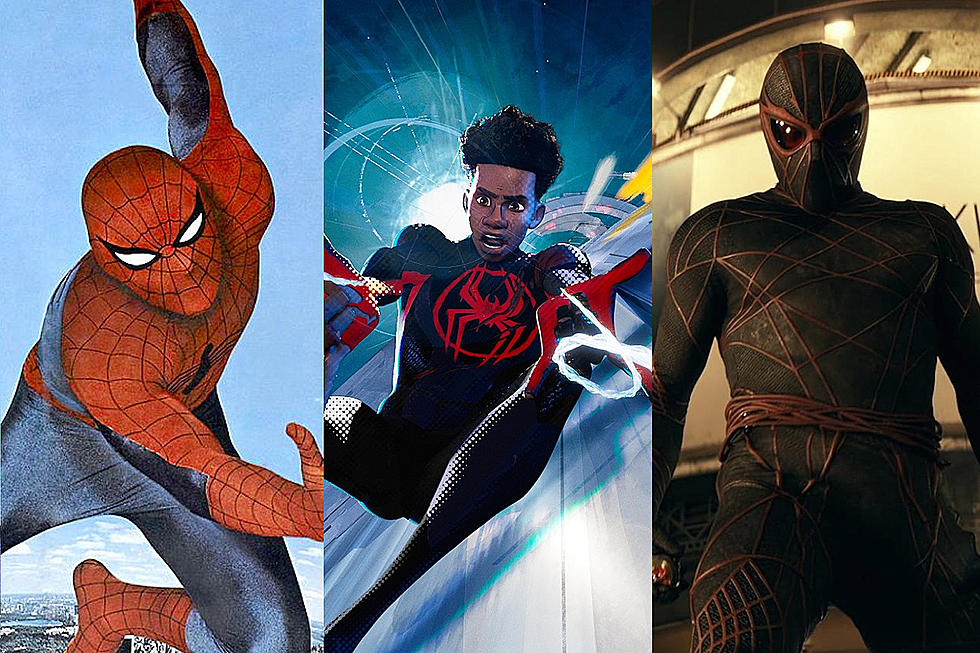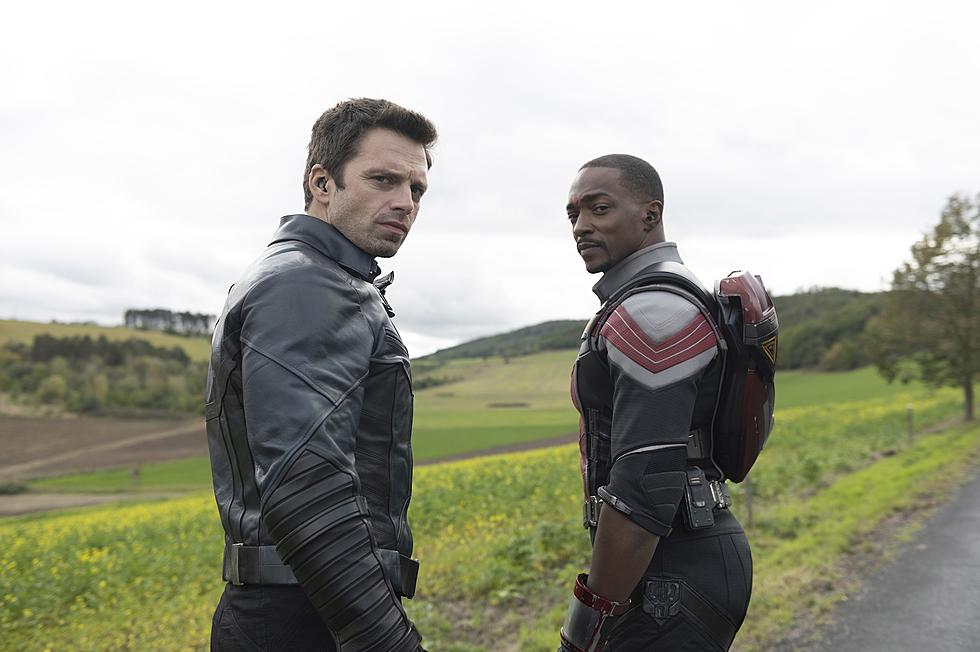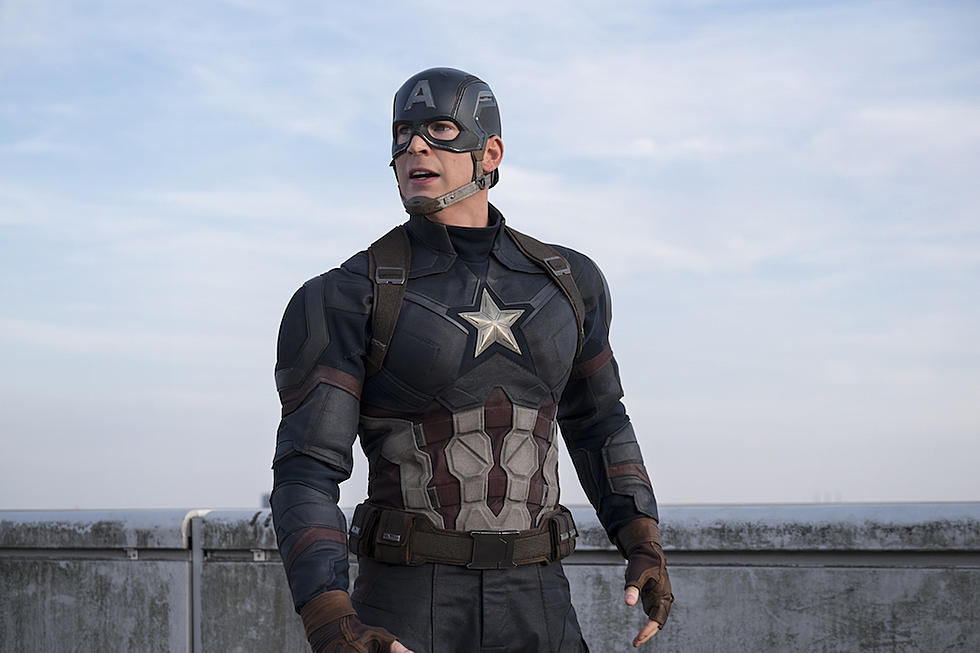
Avengers NOW: A Black Captain America, A Female Thor, A Superior Iron Man, And What It Means For Marvel And Diversity
On Tuesday morning Whoopi Goldberg and the hosts of The View announced that Marvel will relaunch Thor this October with a 'worthy' woman brandishing the hammer. Marvel followed that announcement with two more high profile switcheroos on Wednesday night as Entertainment Weekly revealed a new-ish and possibly superior Iron Man, and Marvel Chief Creative Officer Joe Quesada joined comedian Stephen Colbert on The Colbert Report to announce that a new guy will take up Captain America's shield.
That in itself isn't much of a surprise -- original Cap Steve Rogers has passed on his mantle a few times, before eventually yanking it back. After spending some time in Dimension Z and fighting the Iron Nail and whatnot, he's now too old to Avenge from the front lines. The big reveal is that the new Captain America will be Sam Wilson, the African-American superhero currently known as Falcon.
It's not hard to guess at Marvel's intentions here. By announcing a female Thor and a black Captain America as a swift one-two punch, the publisher accomplishes two things. First, it shakes up its universe in a way that's sure to garner attention -- as indeed it has. Second, it makes a mission statement.
To the first point; the whole world knows Marvel's Avengers characters now. That could be a millstone around the publisher's neck if Marvel put the need to reflect the movies ahead of a need to tell its own stories. Marvel has certainly tried to configure Avengers comics around the on-screen characters, but to no particular success with respect to sales (certainly nothing to indicate that the Avengers are the most popular movie characters in America).
Replacing at least two of its Avengers big three -- Thor, Captain America, and Iron Man -- suggests Marvel's commitment to telling its own stories, albeit in a grandstanding, headline-grabbing way. A woman taking the name and role of a male Norse god? A black man representing all of America? These are moves that upset the right people, and that guarantees attention.
Which leads in to the second point. These changes suggest an agenda. I'd call it progressive agenda, but it's not. Putting women and people of color in key positions isn't progressive, it's just evidence that superhero comics are slowly catching up to the present day. It just happens that there's a strong regressive agenda in our culture that's resistant to that kind of change.
Marvel's only motive here may be to stir up controversy and hope it translates to sales, but I think there's enough evidence in the publisher's support for books like Ms. Marvel, Captain Marvel, and Mighty Avengers, that the publisher is sincere in its efforts to reach out to audiences that traditionally haven't been well-served by superhero comics. There's always more work to be done, but Marvel's output feels more inclusive with every passing quarter.
Even before tonight's announcement there was a heavy hint that we'd soon see a black Captain America in one of Marvel's house ads. The same ad offered readers their first glimpse of "unworthy" one-armed Thor.
The smart bet was always that this was Sam Wilson in the image, but there's no shortage of heroes of color who could have stepped into Captain America's shoes. There was one previous black Captain America, Isaiah Bradley, introduced by Kyle Baker and the late Robert Morales in the mini-series Truth: Red, White And Black in 2003. Isaiah, his son Josiah, or his grandson Elijah -- Patriot of the Young Avengers -- would all be plausible candidates for the role of Captain America.
Luke Cage or America Chavez could also comfortably take the role, but the preview image clearly doesn't show either of them. Another former Captain America sidekick, Lemar Hoskins, aka Battlestar, has never really had his due, perhaps in part because the Cap he was affiliated with was another substitute shield-holder, John Walker, later U.S. Agent.
We now have it confirmed that Sam Wilson will be the new Cap. It's tempting to laud this as an unambiguously positive development, and certainly a black Captain America has the power to inspire readers the way Miles Morales has done as the black Spider-Man in Marvel's Ultimate universe.
Yet this is the Marvel universe, and the laws of elasticity are in play there as much as they are in DC Comics' universe. Every substitute hero in an iconic role carries an expiry date. At a certain point, Thor will be a man again. At a certain point, Captain America will be white again. In the short term these characters send the welcome message that women and people of color can be the equal of the white dudes that dominate superhero fiction.
And in the long term, they suggest that they can't be, because in the long term they don't get to be. Female Thor and black Captain America are great inspirations as long as they're around, but when they inevitably leave and the primacy of white men reasserts itself, the after-taste will be bitter.
A black or female hero in a temporary role will never be as powerful a symbol as a black or female hero with their own indelible, permanent identity. In the case of Sam Wilson, it's especially frustrating to see him lined up as the latest of Steve Rogers' "successors" when, thanks to his extremely well received appearance in the movie Captain America: The Winter Soldier, his identity as Falcon has never had more cachet. Perhaps a stint as Cap will boost his profile and his résumé in the long term, but in the short term it's frustrating that Marvel isn't throwing its weight behind a Falcon ongoing series at a time when demand presumably couldn't be higher.
It's also frustrating that Marvel hasn't seen fit to put a black creator on its new Captain America title, instead opting for current series writer Rick Remender and incoming artist Stuart Immonen. That's not to suggest that Remender isn't talented or deserving -- indeed, his Dimension Z storyline of Captain America earned a place on ComicsAlliance's list of the best comics of 2013, as did Immonen's work on All-New X-Men -- or even to suggest that a black creative team is necessary for a book with a black lead. But when black creators aren't even represented on books with black lead characters, that undermines any message a publisher might want to send about its commitment to diverse audiences. People from those audiences have plenty to say. They deserve the chance to say it, and audiences deserve to hear it.
Despite those many caveats, the introduction of a black Captain America is a welcome development on its own terms because of what it suggests about Marvel's commitment to storytelling and inclusion. If Marvel could demonstrate the same commitment to elevating black characters with their own identities and hiring black creators to tell their own stories, this could be an across-the-board win for the publisher.
Now all eyes turn to Iron Man, the third member of Marvel's core Avengers triumvirate. Was there any chance Tony Stark wouldn't have a replacement before the week is out? Well, we now know Marvel plans to relaunch Iron Man as Superior Iron Man, a new series by Tom Taylor and Yildiray Cinar, and Entertainment Weekly clearly identifies the title character as Tony Stark. But Marvel Editor-in-Chief Axel Alonso hinted at the intentionally foreboding implications of the "superior" descriptor -- used very recently to identify the "evil" wall-crawler Superior Spider-Man when his role was assumed by villain Doctor Octopus. "Like the Superior Spider-Man, Superior Iron Man is a character that’s hard to root for," Alonso told EW.
All-New Captain America, Thor and Superior Iron Man are all part of an initiative Marvel's calling Avengers NOW, which EW suggests will see more titles added to the line as time goes on. This promo image reflects some of these changes, and also puts to rest a popular theory about the new Thor: she's definitely not Angela. Unless she is Angela, and Marvel placed her right beside the new Thor as a dirty trick to throw everybody off.
The last bit of race-swapping superhero news is decidedly more grim: Stephen Colbert is the new Falcon.
More From ComicsAlliance









